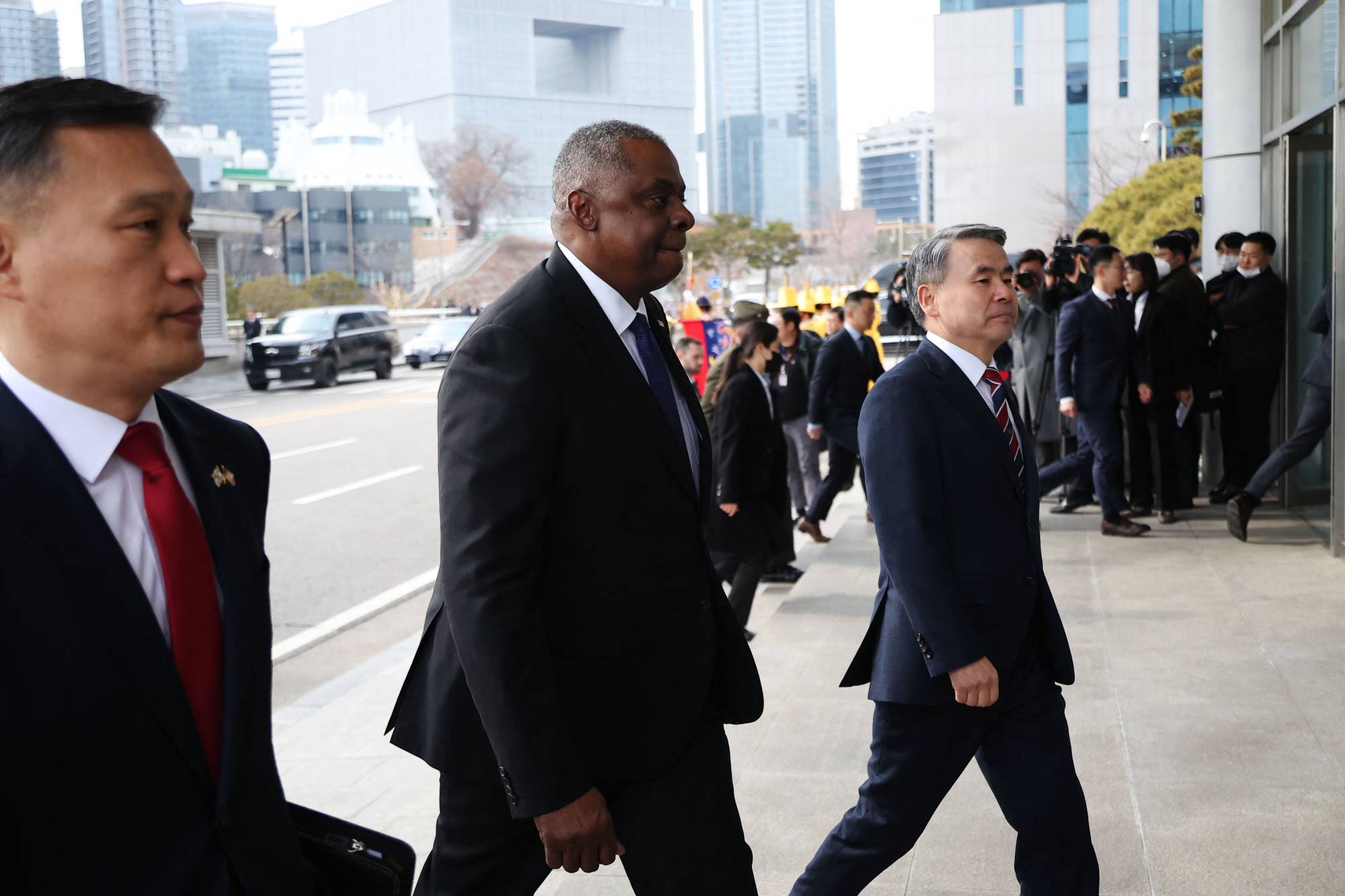The United States and South Korea will boost nuclear deterrence planning, the allies’ defense chiefs said Tuesday in Seoul, pledging to hold tabletop exercises focused on the growing North Korean threat next month.
U.S. Defense Secretary Lloyd Austin held talks with his South Korean counterpart, Lee Jong-sup, in a bid to reassure Seoul of Washington’s “ironclad” commitment to defending its ally. The visit came amid rising public support for Seoul developing its own nuclear weapons after North Korea’s record-breaking flurry of missile tests last year – including weapons believed capable of striking the United States.
"Our commitment to the defense of the ROK remains ironclad, and the United States stands firm in its extended deterrence commitment," he said, referring to South Korea by its official name, the Republic of Korea. "That includes the full range of U.S. defense capabilities, including our conventional, nuclear and missile defense capabilities.”



















With your current subscription plan you can comment on stories. However, before writing your first comment, please create a display name in the Profile section of your subscriber account page.